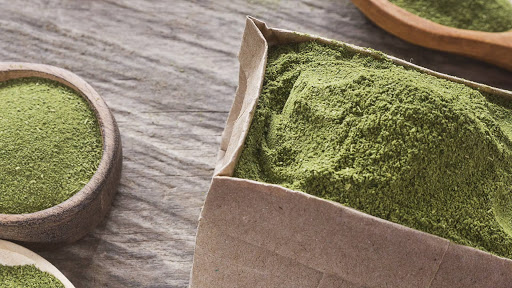Keeping your blood sugar levels within the healthy range of between 70 and 120 is essential for your overall well being. If you have chronically high glucose levels, it can lead to long-term complications and premature death. On the other hand, low glucose levels can lead to coma and death if not treated immediately.
While healthy individuals can smoothly go about their day without worrying about their blood sugar levels, people with diabetes need to keep a close watch on it regularly.
Over 34.2 million people in the US alone have diabetes. As there’s no cure for the condition yet, it’s critical to find the best ways to keep it under control. And kratom might just be able to help.
Let’s take a closer look at kratom and see how it might be beneficial for diabetic patients.
Contents
What Is Kratom?
Kratom, or more accurately Mitragyna Speciosa, is a tree in the coffee family. It’s native to Southeast Asian countries where it’s been used for centuries as a natural remedy for a wide variety of different conditions.
Field workers would often rely on kratom for an energy boost. Those with chronic pain would use it to alleviate pain. People with anxiety would brew kratom tea to lift their mood and relieve stress. And most recently, those with type 1 and 2 diabetes have been using kratom to manage their insulin and blood glucose levels.
If you’re looking into “kratom near me,” you should know that there are three different kinds that you can get – white, red, and green.
White kratom (receiving its name from the white color of the veins on the leaf) is commonly used for boosting your energy as it has a stimulant-like effect. You’ll get a sedative-like effect from the red kratom, which can be a powerful opiate. Most popular is the green kratom, which combines the powers of the previous two, delivering sedative effects at higher doses, and stimulating effects at lower doses. Green kratom could be the best option for managing diabetes.
Pain, Diabetes, and Kratom
People with diabetes will experience a variety of different symptoms, neuropathic pain being the most common. High blood sugar levels can damage your nerves and cause you to experience severe pain (and at times numbness), most notably in the legs.
Neuropathic pain is notoriously difficult to treat and often requires strong, highly addictive painkillers that usually end up causing more problems than they solve.
In this instance, kratom can prove to be the most useful.
Kratom is known for its potent pain-relieving properties and has minimal risks of causing addiction. People often use Kratom to help treat addiction and manage withdrawal symptoms.
Kratom Can Help Lower Stress Levels
Stress isn’t just a state of mind. It’s a complex biological process affecting your whole body. Higher stress levels can cause physical and mental health issues, causing many conditions and disorders, diabetes being one of them.
It can contribute to the development of hyperglycemia and leave you with long-lasting consequences.
Kratom could be the answer to dealing with higher stress levels, helping you control and possibly even avoid the development of diabetes.
When used responsibly, kratom can alleviate your mood, fight anxiety symptoms, and relieve stress.
Potential for Kratom to Modulate Insulin and Glucose Levels
While more research is needed to provide conclusive evidence, kratom appears to play a part in managing blood insulin and glucose levels in the body.
Kratom leaves are packed with alkaloids that could prevent severe fluctuations in the glucose and insulin levels, potentially helping you prevent chronically high and dangerously low blood sugar. This could be beneficial to those who already have diabetes and those at risk of developing it.
Kratom Could Keep Your Appetite in Check
Finally, kratom could be useful for diabetic patients by keeping their appetite in check. One of the most common side-effects of kratom use is the loss of appetite. While a loss of appetite could cause problems in some people, those with diabetes could potentially benefit from it.
By having you feel full after a meal, kratom can help you regulate your food intake and even help you avoid foods that could be dangerous for your blood sugar levels.
In those with obesity who are at a higher risk of developing diabetes, kratom might help with weight loss and minimize the risks of diabetes.
Final Thoughts
Kratom is by no means a cure for diabetes. However, it could help to treat or alleviate some of its symptoms.
Consult your doctor before you start self-administering kratom, and see whether it could be a suitable natural remedy for you. Each one of us is unique, and it’s best to be sure if this herb would be useful for your individual needs or not.




